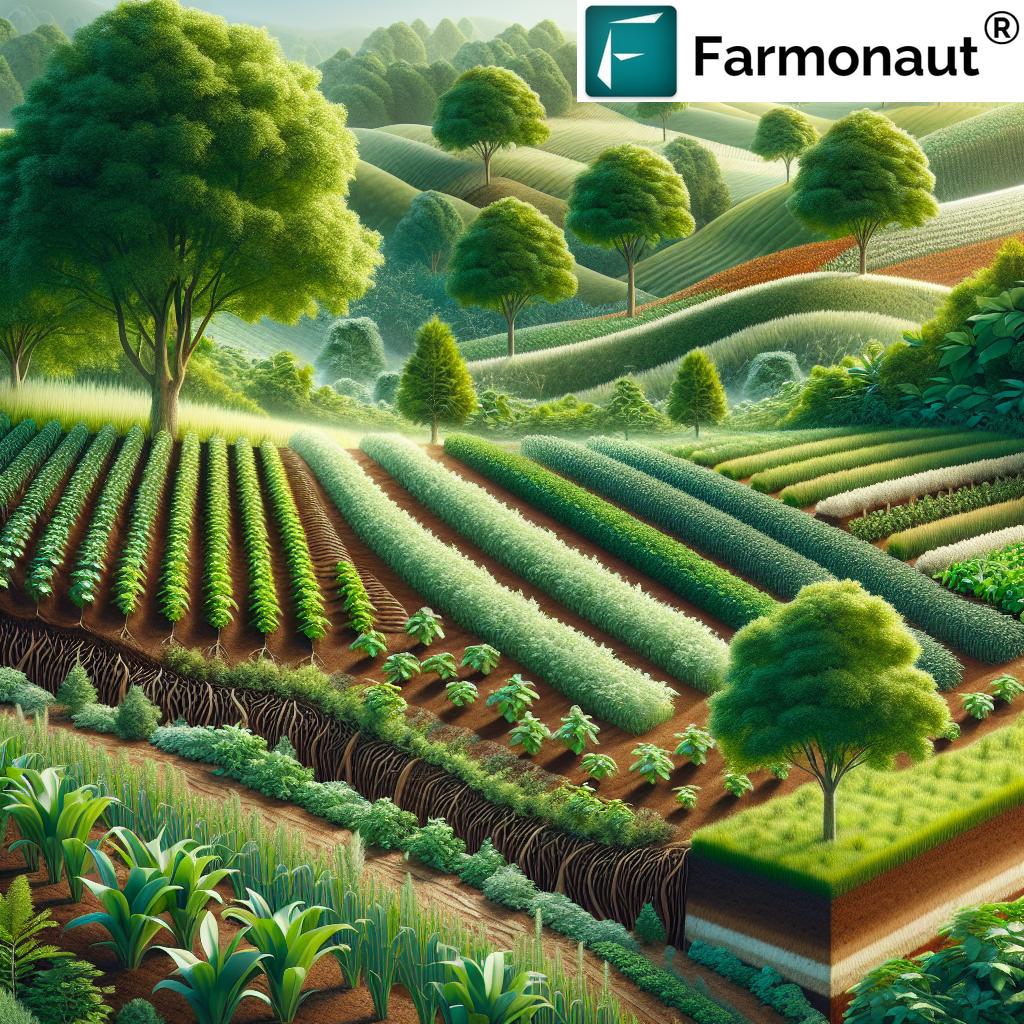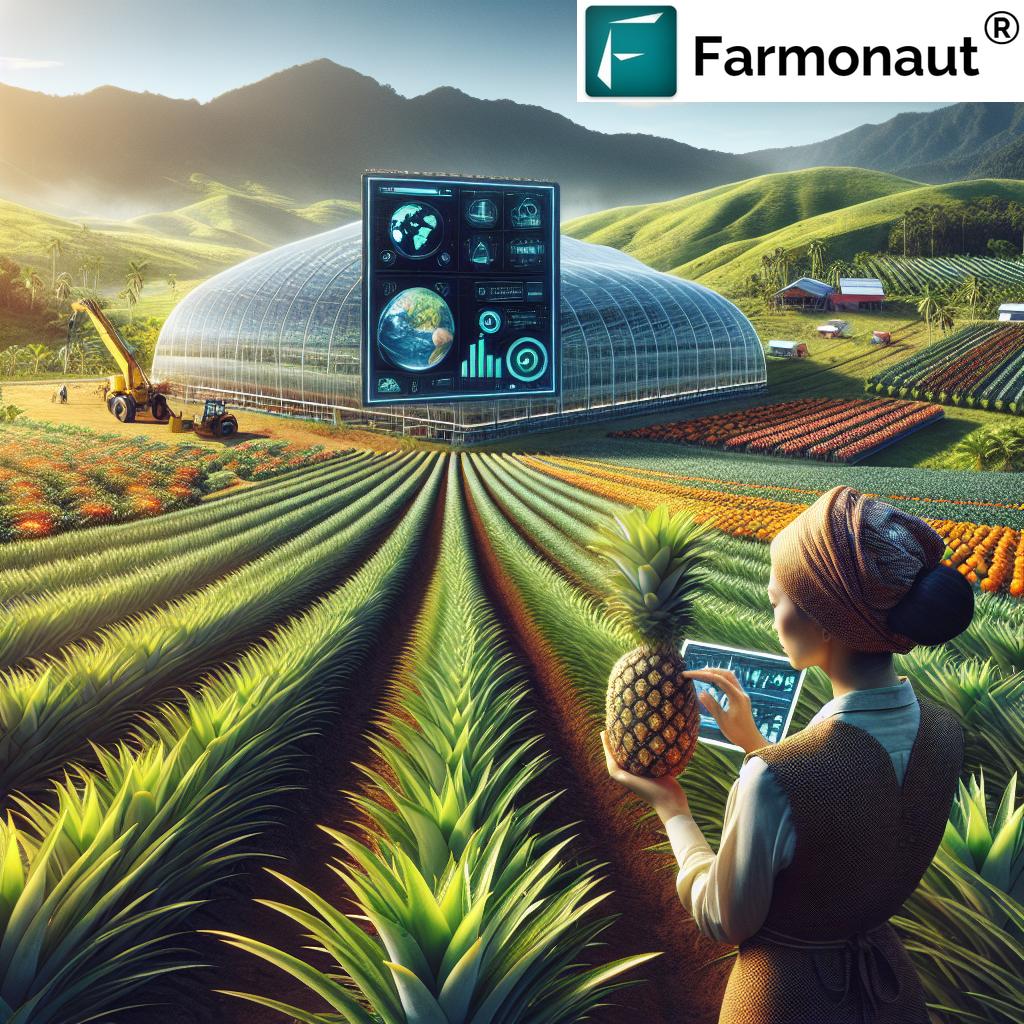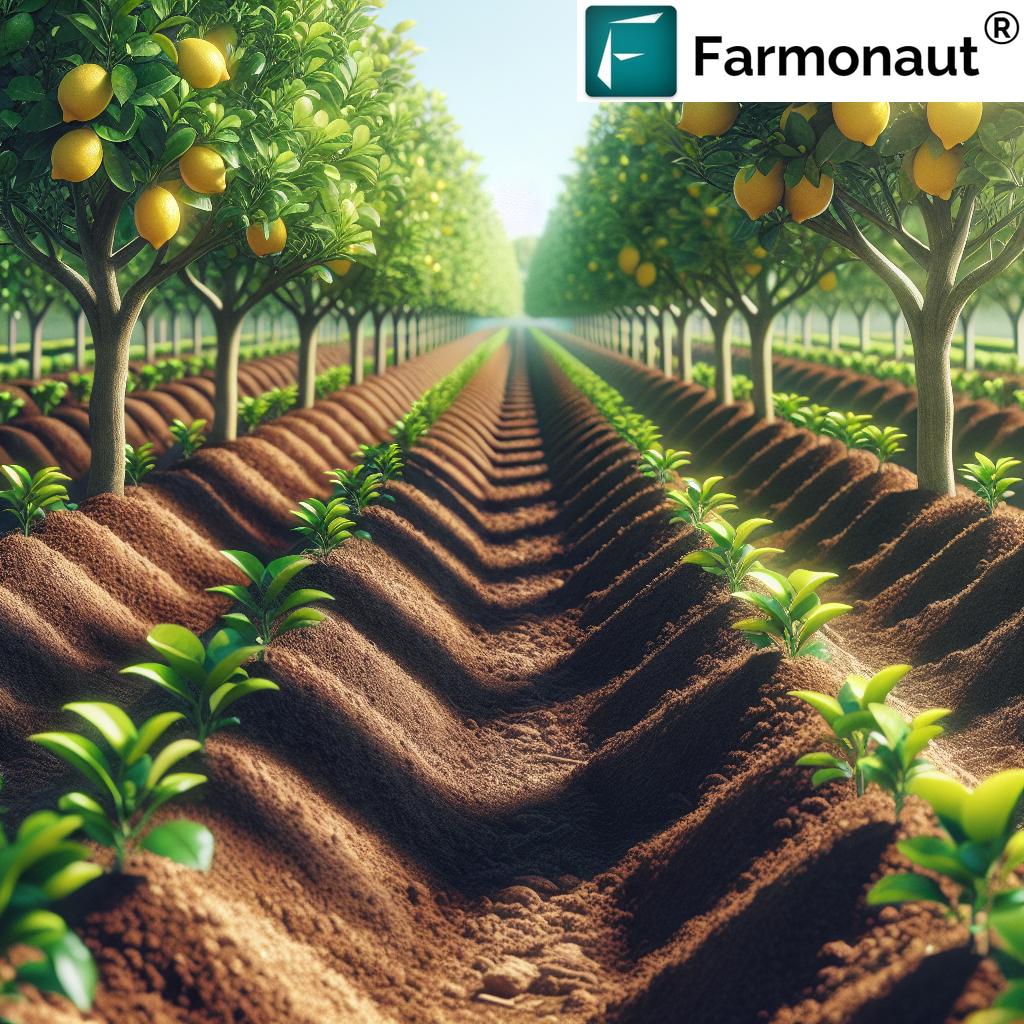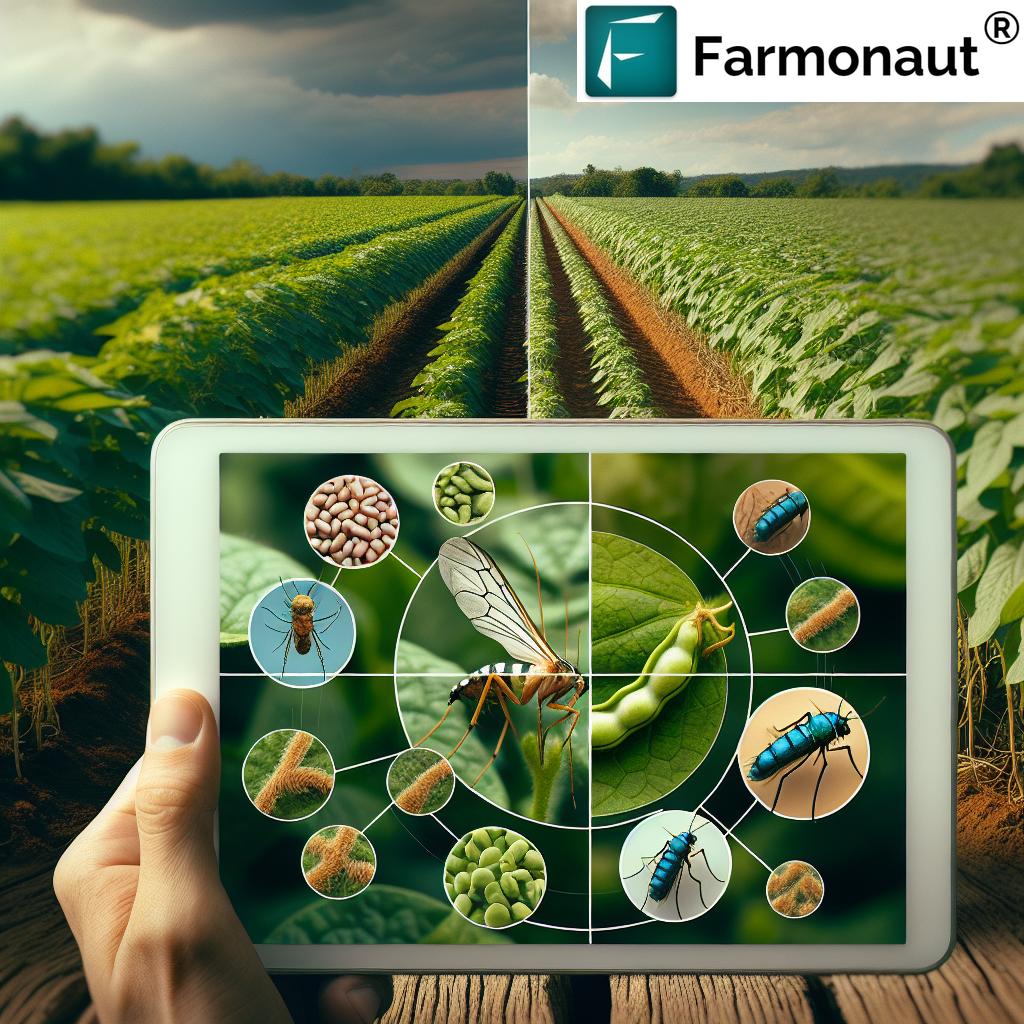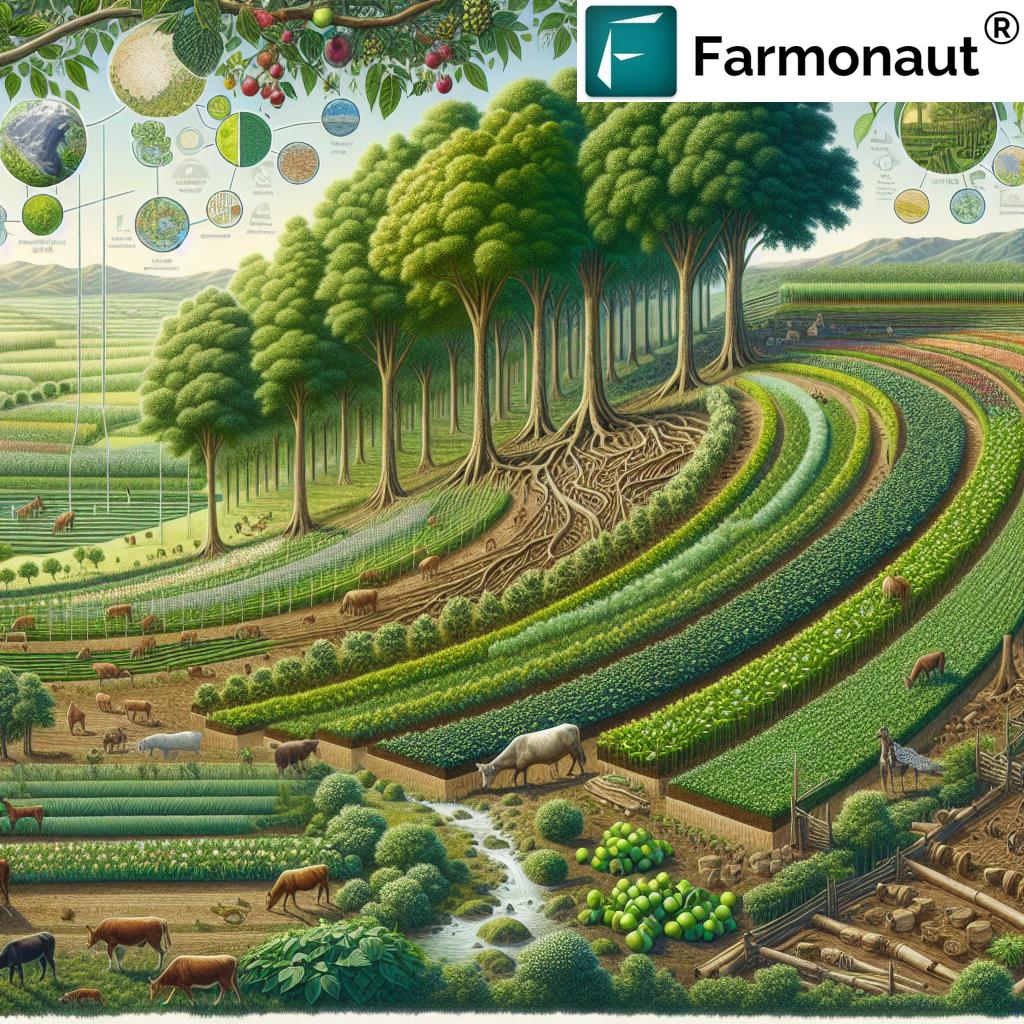How Organic Farming Promotes Sustainable Development: A Pathway to Resilient Agriculture in 2025
“Organic farming increases soil organic matter by up to 21% compared to conventional farming, boosting long-term soil health.”
Introduction: Organic Farming and Sustainable Development in 2025
As we approach 2025, the global sustainable development in organic farming movement is more relevant than ever. Escalating issues like climate change, soil degradation, biodiversity loss, and food security challenges are intensifying. In this evolving agricultural context, how organic farming promote sustainable development is a central question for policymakers, farmers, and consumers alike.
Organic farming has emerged as a crucial strategy, aligning with the United Nations’ vision for sustainability. It offers a pathway to create resilient agricultural systems that support not just environmental health, but also economic and social progress. This comprehensive guide explores what is organic farming how does it promote sustainable development, its impact on soil health, biodiversity, food systems, and how it shapes the future of sustainable development agriculture.
What is Organic Farming?
Organic farming is an agricultural approach that relies on natural processes to enhance soil fertility, control pests, and grow crops without the use of synthetic fertilizers, pesticides, genetically modified organisms (GMOs), or harmful additives.
This method emphasizes the use of:
- Crop rotation: Prevents soil depletion and disrupts pest cycles.
- Composting: Builds organic matter and enhances nutrient cycling.
- Green manures: Adds fertility and improves soil structure.
- Biological pest control: Uses beneficial insects and organisms to manage pest populations without chemicals.
- Habitat preservation: Maintains ecological balance and supports local biodiversity.
These practices are foundational to sustainable development in organic farming, nurturing healthy ecosystems and supporting long-term human well-being.
How Organic Farming Promote Sustainable Development
The definition of sustainable development by the United Nations is to “meet the needs of the present without compromising the ability of future generations to meet their own.” Organic farming aligns with this principle by addressing the three vital pillars:
- Environmental Sustainability: Reduces chemical pollution, protects ecosystems, enhances soil health, and supports biodiversity.
- Economic Sustainability: Offers stable income opportunities, minimizes reliance on expensive synthetic inputs, and unlocks premium market access for farmers.
- Social Sustainability: Encourages local knowledge, traditional techniques, and food sovereignty—strengthening rural communities and nutrition.
The integration of these pillars makes sustainable development in organic farming both a feasible and essential strategy for present and future food systems.
Comparative Impact Table: Organic vs. Conventional Farming
The table below summarizes the key sustainability indicators, comparing organic farming and conventional agriculture for sustainable development in organic farming and environmental health.
| Indicator | Organic Farming | Conventional Farming | Sustainable Development Benefit |
|---|---|---|---|
| Soil Health & Organic Matter | +20-21% organic matter Tick: ✓ |
Lower organic matter 5%–10% loss over time |
Boosts soil fertility, structure, and resilience for future generations. |
| Biodiversity Support | +30% more species Tick: ✓ |
Lower species diversity | Promotes ecological balance, pest regulation, pollination, and resilient ecosystems. |
| Water Usage | 5–20% less (better retention) | Higher consumption, run-off issues | Reduces water wastage, increases drought resilience. |
| Carbon Footprint | Lower footprints Soil sequesters more carbon |
Higher emissions from inputs | Helps mitigate climate change and offers climate-smart solutions. |
| Yield Stability | More stable over time in stress | Higher peaks, sharp drops in stress | Grows food even under variable climate. |
“Organic farms support up to 30% more species, enhancing biodiversity and ecosystem resilience for sustainable agriculture.”
Soil Health and Fertility in Sustainable Development Agriculture
Maintaining soil health and fertility is fundamental to sustainable development in organic farming. Organic methods build up organic matter using compost, cover cropping, and crop rotation, which enhances the nutrient and water-holding capacity of the soil.
- Compost:
- Increases soil organic matter– up to 21% higher in organic systems (see trivia).
- Enhances nutrient cycling—fuels beneficial microbes and supplies natural fertilizers.
- Improves water retention and resilience to droughts.
- Cover Cropping:
- Prevents soil degradation and erosion.
- Supplies green manure for sustained fertility.
- Reduced Synthetic Inputs:
- Avoids chemical build-up and soil pollution.
- Ensures healthier root zones and ecosystems.
Organic farming’s approach to soil quality is crucial in today’s climate of degradation and erratic weather, laying a lasting foundation for resilient agriculture.
Discover real-time soil condition insights and enhance your farm management using Farmonaut’s satellite solutions.
Explore our Large Scale Farm Management App
– monitor your crops, soil, and more!
Biodiversity and Ecological Balance Support
Healthy biodiversity is essential for sustainable development agriculture. Organic farms support up to 30% more species, providing habitat for beneficial organisms and enhancing natural pest control, pollination, and ecological resilience.
- Biological pest control: Fosters balance by encouraging natural enemies like ladybugs and birds; thus, minimizing reliance on synthetic pesticides.
- Habitat preservation: Maintains field margins, tree lines, and wildflower strips to provide resources for pollinators and predatory insects.
- Rotation and diversity: Disrupts pest/disease cycles, regulates populations, and supports a broad variety of plants and animals.
For robust, eco-friendly pest management, try solutions designed for organic resilience!
-
Farmonaut’s Crop Plantation and Forest Advisory
– Get actionable, satellite-driven pest and health alerts tailored to your farm.
Water Conservation and Climate-Resilient Agriculture
Water scarcity is a rising global concern. Organic farming methods prioritize water conservation and resilient practices:
- Enhance soil organic matter and aggregation, leading to better water retention and less runoff.
- Encourage cover crops and mulching, reducing evaporation.
- Avoid water-polluting chemical inputs, safeguarding ground and surface water quality.
Farmers investing in sustainable development farming are increasingly guided by climate-smart solutions. Organic systems tend to be less energy-intensive and better at sequestering carbon, thereby contributing to climate change mitigation.
Explore Farmonaut’s Carbon Footprinting:
Track emissions, monitor environmental impact, and comply with regulations for true agricultural sustainability.
Challenges & Opportunities in Sustainable Development in Organic Farming
Organic farming’s trajectory in 2025 is shaped by both progress and persistent challenges:
- Lower yields in some crops: Ongoing research and advanced breeding are narrowing this gap.
- Certification complexities: Many farmers face hurdles in documentation and market access, though new blockchain-based (see Farmonaut Traceability) systems are transforming traceability and reducing fraud.
- Knowledge dissemination: Peer-to-peer learning, tech platforms, and AI-based agricultural advisory are increasing adoption of best practices.
- Financial entry barriers: Innovative lending and insurance backed by satellite verification tools are making organic conversion more accessible (learn how).
Innovations in precision organic farming, biofertilizers, and integrated pest management (such as Organic Grape Mite Cure) are making sustainable development in organic farming scalable and practical in 2025.
How Farmonaut Enables Sustainable Development Farming
At Farmonaut, our solutions empower the goals of sustainable development in organic farming in several unique ways:
-
Satellite-Based Crop and Soil Monitoring: We provide multispectral satellite imagery to evaluate soil health, crop vigor, and field diversity—enabling precise, data-driven interventions for organic farmers.

-
AI-Based Advisory with Jeevn: Our proprietary Jeevn system delivers tailored strategies for pest, disease, and nutrient management—adhering to the principles of organic agriculture.
Try the Farmonaut App (web, Android, or iOS) for real-time organic advisory. -
Blockchain-Based Traceability: By integrating blockchain into our platform, we offer unprecedented transparency across the organic value chain, restoring consumer trust and reducing certification obstacles for farmers.
Explore Traceability Solutions for Organic Agriculture -
Environmental Impact Monitoring: Real-time tracking of emission data and carbon footprint ensures that efforts in organic and sustainable development farming are measurable and effective.
Discover Carbon Monitoring Tools -
Resource & Fleet Management: We streamline field logistics, helping organic producers scale their farms efficiently and sustainably.
Fleet & Resource Management for Sustainable Farms - API Access for Developers & Institutions: Our public API and developer documentation make it easy for businesses and governments to integrate satellite-driven sustainability metrics into their platforms.
Our mission at Farmonaut is to make sustainable, data-driven agriculture accessible and affordable for all—farmers, agribusinesses, and governments. By harnessing advanced monitoring, AI, and blockchain, we guide the transition to a resilient agricultural future.
Subscribe now and accelerate your sustainable farming journey:
FAQ – Organic Farming & Sustainable Development
-
Q: How does organic farming promote sustainable development?
Organic farming promotes sustainable development by enhancing soil health, supporting biodiversity, reducing pollution, fostering economic resilience, and encouraging local knowledge—all crucial for climate, food security, and ecological balance in 2025 and beyond.
-
Q: What is organic farming and how does it differ from conventional agriculture?
Organic farming is an agricultural approach that relies on natural processes, avoiding synthetic fertilizers, pesticides, GMOs, and harmful additives. It emphasizes soil health, biodiversity, and ecological balance—contrasting with conventional systems that often depend on artificial inputs.
-
Q: Is organic farming economically sustainable for smallholder farmers?
Yes, while organic farming can require more labor initially, it reduces long-term input costs, opens access to premium markets, and increases resilience to climate and market shocks, making it economically sustainable.
-
Q: What role does technology play in supporting sustainable organic agriculture?
Technologies like satellite monitoring, AI advisories, and blockchain traceability (as offered by Farmonaut) help farmers optimize inputs, monitor crops, and access transparent markets—boosting scalability and viability.
-
Q: How does organic farming support biodiversity?
Organic farms support a broader variety of plant and animal species, promote natural pest regulation, and maintain ecological harmony, essential for food system resilience.
-
Q: Are yields in organic agriculture sufficient to feed the global population?
With advances in breeding, knowledge dissemination, and precision tools, yield gaps are narrowing. Combined with reduced waste and diversified systems, organic farming can support food security in a sustainable way.
Conclusion: The Future of Sustainable Development Agriculture
Organic farming stands as a foundation for sustainable development agriculture in the rapidly evolving world of 2025. Its approach to nurturing soil health, minimizing chemical pollution, supporting biodiversity, and promoting social and economic well-being forms a holistic system. By addressing the essential environmental, economic, and social pillars, organic farming not only produces nutritious food but also sustains the future of farmers and communities alike.
As global climate and resource challenges intensify, adopting organic farming methods is no longer optional. It is imperative for securing long-term food and water security, environmental regeneration, and resilient agriculture.
Leveraging satellite and AI-based technologies, as pioneered by Farmonaut, will further accelerate the adoption and effectiveness of sustainable development in organic farming, enabling data-driven decisions for everyone—from smallholders to nation-scale policymakers. The transition to genuinely sustainable food systems is within reach if we continue to innovate, collaborate, and stay grounded in proven ecological principles.
Ready to be a part of the sustainable agriculture revolution?
- Start your journey with Farmonaut today. Empower your farm with real-time insights, precision advisory, and transparent traceability for a resilient, organic future.

















